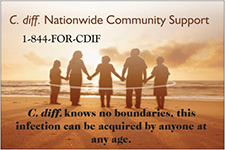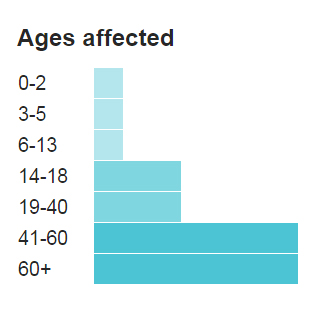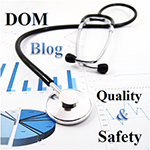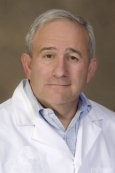 C. diff. infections are responsible for almost a half million infections and at least 15,000 deaths each year in the United States. In 2015, there were 343 cases at the Banner - UMC Tucson hospital and 62 at Banner - UMC South. They’re triggered by a bacterium, Clostridium difficile or C. difficile, that causes inflammation of the colon, known as colitis that usually manifests with severe diarrhea and in some cases sepsis and even septic shock.
C. diff. infections are responsible for almost a half million infections and at least 15,000 deaths each year in the United States. In 2015, there were 343 cases at the Banner - UMC Tucson hospital and 62 at Banner - UMC South. They’re triggered by a bacterium, Clostridium difficile or C. difficile, that causes inflammation of the colon, known as colitis that usually manifests with severe diarrhea and in some cases sepsis and even septic shock.
 Recent work from the U.S. Centers for Disease Control & Prevention indicates that a C. diff. diagnosis is not only life threatening but can also be emotionally traumatic for patients and their families. Many families experience a range of emotions including confusion, anger, fear, panic and denial.
Recent work from the U.S. Centers for Disease Control & Prevention indicates that a C. diff. diagnosis is not only life threatening but can also be emotionally traumatic for patients and their families. Many families experience a range of emotions including confusion, anger, fear, panic and denial.
 The C Diff Foundation was established in 2012 by Nancy Caralla, a nurse who contracted the health-care associated infection from working with infected patients and who lost her father to severe sepsis from C. diff.
The C Diff Foundation was established in 2012 by Nancy Caralla, a nurse who contracted the health-care associated infection from working with infected patients and who lost her father to severe sepsis from C. diff.
The C Diff Foundation supports public health through education about and advocating for C. difficile infection (CDI) prevention, treatments and environmental safety worldwide. The C Diff Foundation recently introduced the C. diff. Nationwide Community Support (CDNCS) Program, providing patients and their families an opportunity to talk with others who have experienced the same diagnosis and symptoms. Before the CDNCS program, there was an absence of professional C. diff. support groups in the United States.
There is evidence showing that people who attend support groups have a better understanding of the illness and treatment choices, develop a more positive outlook, and have a better ability to cope and adapt to life during and after the treatment of a C. diff. infection. CDNCS support groups provide grief counseling and ideas for nutrition. They also provide suggestions for C. diff. prevention, treatments, use of environmental safety products availability, homecare strategies, pharmaceutical assistance programs, and C. diff. survivor sessions.
If you have a patient with C. diff., please consider linking them up with a CDNCS group. Participation is available at no cost for anyone who is interested via teleconferencing. They can connect up with through the foundation’s nationwide toll-free hotline (1-844-FOR-CDIF) or via the monthly schedule available on the foundation’s website http://cdifffoundation.org
SEE ALSO:
- http://blogs.cdc.gov/safehealthcare/2015/02/25/c-diff-survivor-and-advocate-shares-her-story-2/
- http://blogs.cdc.gov/safehealthcare/2015/12/10/c-diff-foundation-launches-patient-family-support-program/
- http://www.cdc.gov/HAI/organisms/cdiff/Cdiff_clinicians.html (for clinicians)
This blog topic was originally posted on Dec. 31, 2015.
POSTSCRIPT—MARCH 30, 2016: "Please thank Dr. Factor for writing this wonderful article and sharing it with the faculty and staff there," said Nancy C. Caralla, founder and executive director of the C Diff Foundation. "We heard about it from some folks that saw the blog post online and sent us a link. We can't thank you enough for underscoring how important an issue this is for hospital patients. I'd also like to point out that our C. diff. community support program has gone 'Global.' We can now offer support to 67 countries around the world. We also continue to through spread information through our International Raising C.diff. Awareness Conference & Health Expo. Our fourth annual event will be Sept. 20, 2016, in Atlanta. Patients, their families and clinicians in the U.S. can contact us for more information on the conference or C. diff. in general at our toll-free hotline 1-844-FOR-CDIF (1-844-367-2343) or info@cdifffoundation.org."


 Phillip H. Factor, DO, FCCP
Phillip H. Factor, DO, FCCP